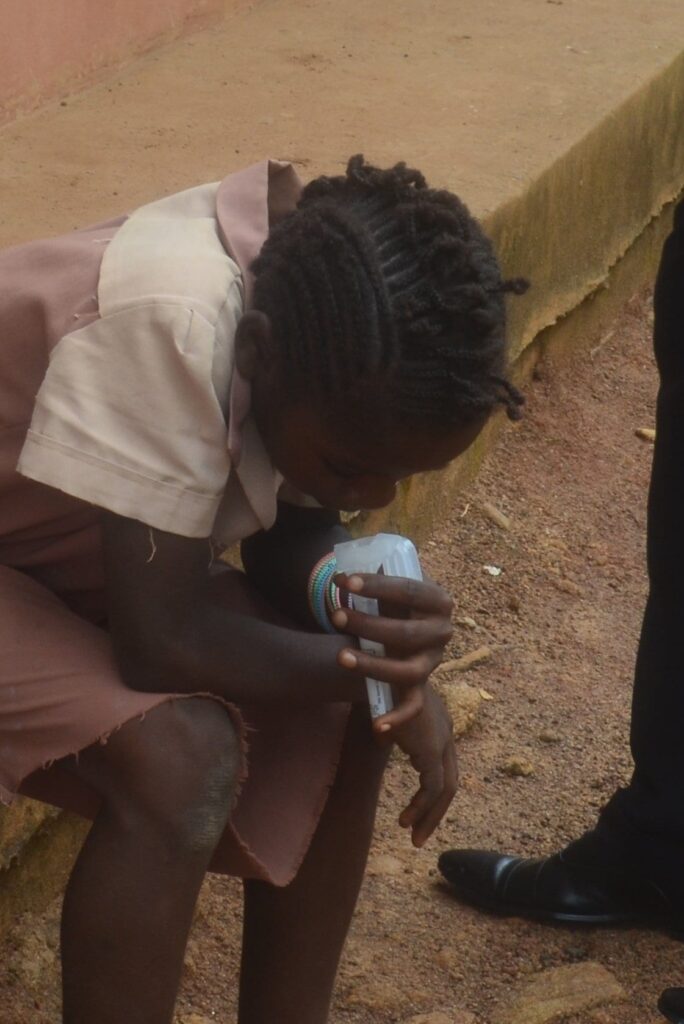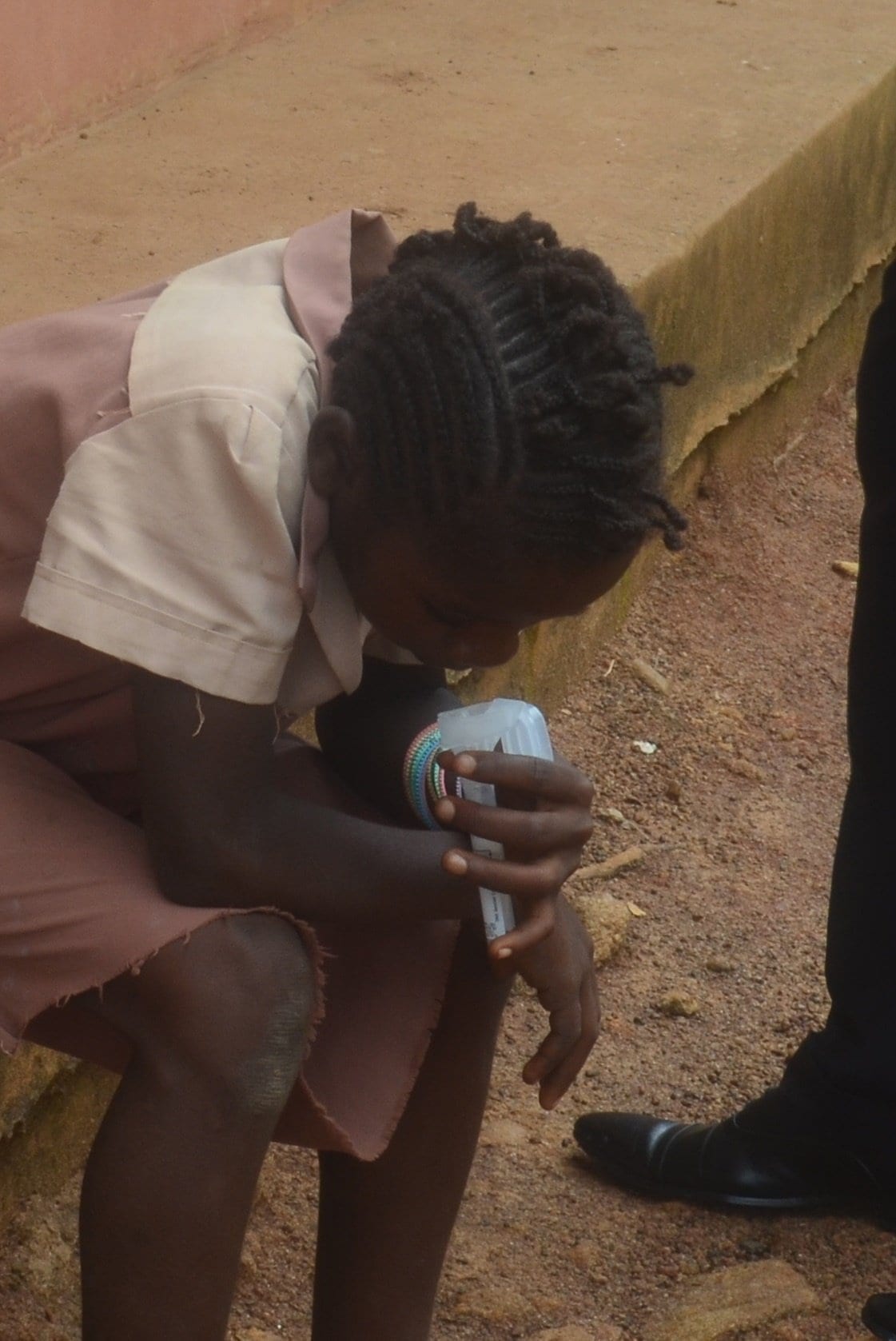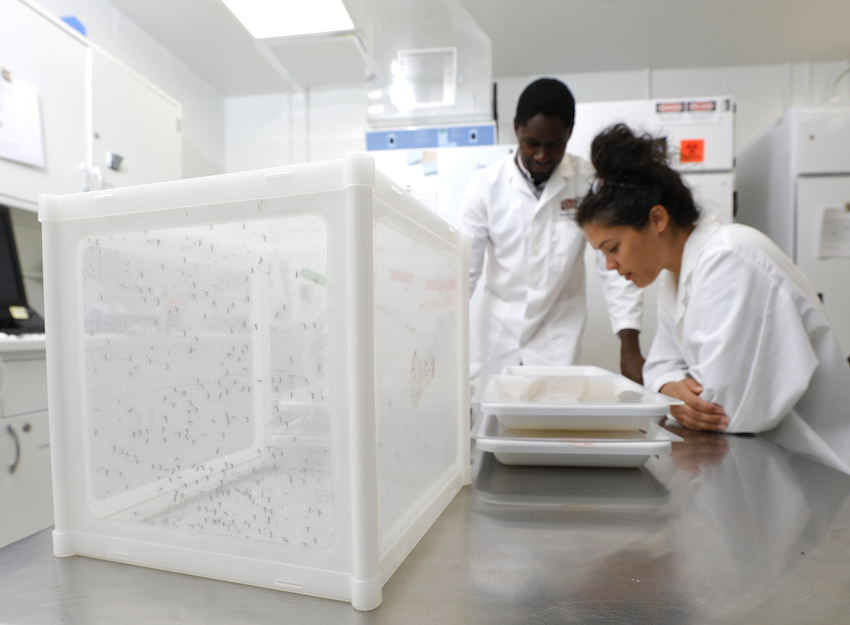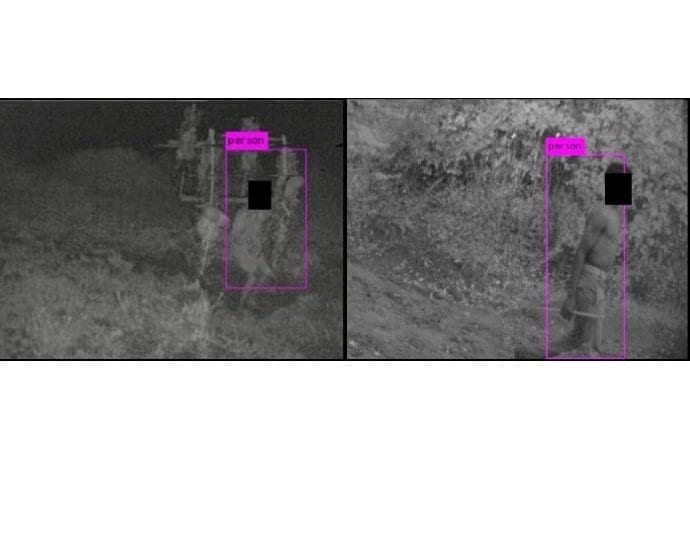
An easy-to-use saliva test to screen for the parasite that causes malaria has been developed by a team of researchers led by a University of Florida scientist.
The non-invasive “spit test” could be a key tool in efforts to eradicate malaria, which kills a child every two minutes, says UF infectious diseases researcher Rhoel Dinglasan. The study on the test was published today in Science Translational Medicine.
Currently, clinicians test for malaria using a blood test, but the test has drawbacks that reduce its effectiveness. The test requires skin pricks that often are stressful for children and their parents. Blood tests often are less reliable because subclinical infections with the parasites that cause malaria can be missed by such tests, leading some patients to come down with malaria although they believed they were malaria-free. The tests also require an infrastructure, such as mobile clinics and trained staff, and can lead to accidental exposure to blood for both patients and clinic workers.
By contrast, the saliva test requires only spitting into a tube, and the test can be administered outside a clinical setting, ideally in schools or community centers, Dinglasan says. Early detection can lead to early treatment and the prevention of disease and further transmission of malaria.
“What if we can identify a child before they get sick because there’s something in their saliva,” Dinglasan says. “If we get to them earlier, they can be cured well before they get the disease.”
Early, subclinical detection of malaria is crucial to malaria eradication because individuals who carry the parasite without exhibiting symptoms are the reservoir that leads to infection of mosquitoes and transmission of the disease. Detecting the presence of the parasite before symptoms appear can save lives because malaria often erupts just days after the parasite can be detected.
The saliva test detects a novel biomarker for Plasmodium falciparum parasites. In some areas of the world, the parasites have acquired a mutation and are therefore no longer detected by the blood-based tests, Dinglasan says. But the saliva test detects an essential protein the parasite needs for survival, which should avoid the problem of mutation and keep the test effective long-term. The diagnostic test detects female parasites circulating in an infected human who is asymptomatic but is carrying the parasite and likely to come down with malaria within a week. The advantage of detecting females over males is that there are four times as many female parasites as males in an infected human.
Dinglasan began working on the test with funding from the Bill & Melinda Gates Foundation in 2014, while still at Johns Hopkins University, which has licensed the test. The research team includes 24 scientists, and the study was conducted with over 300 children in Cameroon, Zambia and Sierra Leone.
Malaria kills about 500,000 children each year, mostly under the age of 5 in Sub-Saharan Africa.
“We are trying to understand malaria transmission by working with people who are not yet sick because those are the people we miss in the clinic,” Dinglasan says. “Malaria is like a big iceberg that we’ve always chipped away at on top, above the water line. But it’s the bottom of the iceberg, this reservoir for transmission, that we don’t understand because it’s a population that, until now, we could not see.
“This test takes us below that water line, so we can see how big the reservoir is,” Dinglasan says.
Learn more: New saliva-based test detects malaria before symptoms appear
The Latest on: Malaria
[google_news title=”” keyword=”malaria” num_posts=”10″ blurb_length=”0″ show_thumb=”left”]
via Google News
The Latest on: Malaria
- Experimental NIH malaria monoclonal antibody protective in Malian childrenon April 26, 2024 at 12:23 pm
One injected dose of an experimental malaria monoclonal antibody was 77% effective against malaria disease in children in Mali during the country’s six-month malaria season, according to the results of a mid-stage clinical trial.
- Malaria is still killing people in Kenya, but a vaccine and local drug production may helpon April 25, 2024 at 12:17 am
Malaria is still a significant public health challenge in Kenya, but an important pilot of the world’s first malaria vaccine may help.
via Bing News











